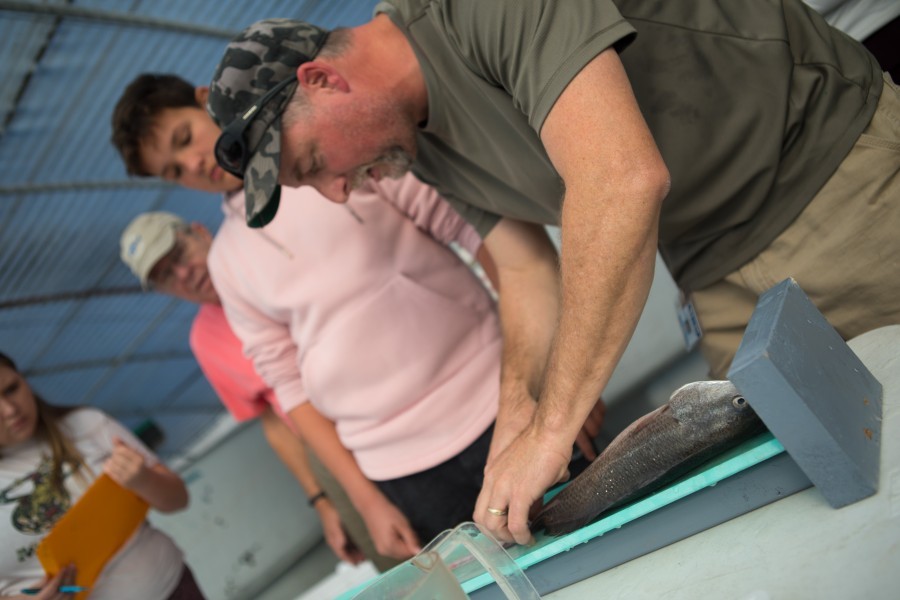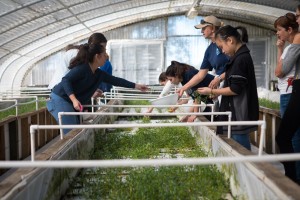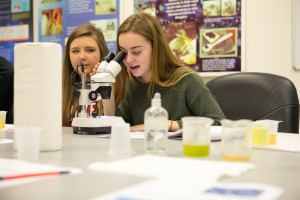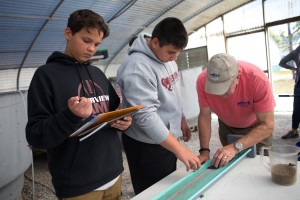Riverview students explore careers in aquaculture

On Jan. 25 Riverview High School studies explored numerous career opportunities in marine aquaculture at MAP.
Twenty-four students from Riverview High School had the chance to experience what a career in marine aquaculture might be like at Mote Aquaculture Research Park (MAP) last Thursday. The students arrived at the 200-acre Park with a limited understanding but plenty of curiosity about aquaculture (farming aquatic organisms such as fish) and left with the knowledge that this field of study includes, biology, chemistry, engineering and much more.
“Many students dream of working with marine megafauna like dolphins and manatees without realizing how vast the world of marine science really is,” said Brad Tanner, Senior School Programs Coordinator at Mote Marine Laboratory & Aquarium. “These experiences give students the chance to work side-by-side with scientists in the field. It is Mote’s goal to instill a greater understanding of what this field has to offer as well as the diversity of career paths available.”
Split into three workstations and groups, students had the opportunity to learn about the daily tasks involved in aquaculture from Mote staff and volunteers. Students learned about the life cycles of rotifers (microscopic organisms used to feed larval fish) while utilizing lab equipment, discussed sustainability and economics as they weighed juvenile fish for health assessments, and harvested sea vegetables for the Sarasota Farmer’s Market as a way to discover how plants and engineering also play a part in marine aquaculture — in this case, in greenhouses engineered to use fish waste as plant fertilizer.
"My students were very intrigued with the Mote Aquaculture Research Park,” said Riverview High School teacher, Dr. Patricia Altomare. They thoroughly enjoyed the hands-on experience, and were fascinated with the live rotifers, weighing and measuring fish as well as picking purslane. The field trip provided my students with an opportunity to experience a real-life application and career using the concepts that are taught in class."
“Marine aquaculture is a growing industry in the United States,” said Dr. Nicole Rhody, Staff Scientist at Mote. “Currently in the U.S., we import 91 percent of the seafood consumed by Americans, leading to a $10 billion trade deficit. At the same time, saltwater fishing in Florida generates an estimated $6.1 billion in revenues annually. Local aquaculture operations can reduce the amount of seafood we are importing and assist in sustaining local fish populations.”
The field trip, appropriately named a “career exploration,” is a part of EdExploreSRQ’s program that helps Sarasota County educators identify and learn about experiential learning opportunities in the local community. Mote works closely with EdExplore SRQ and offers many explorations throughout the school year.


